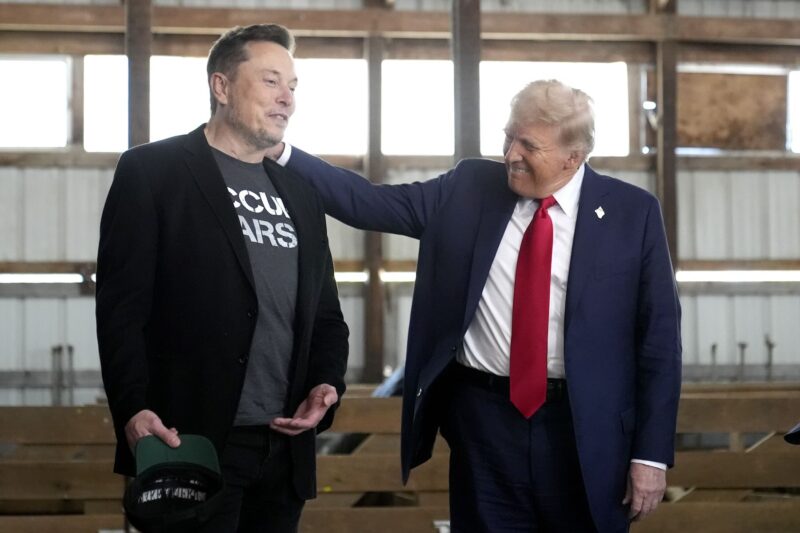Leading transport analysts, including one notable Tesla “bull”, have downgraded their forecasts for Tesla sales in the current quarter, and the full year, blaming the impact of the consumer pushback against Elon Musk’s right wing politics and his highly visible and divisive role in the Trump Administration.
“We struggle to think of anything analogous in the history of the automotive industry, in which a brand has lost so much value so quickly,” wrote JPMorgan analysts, led by Ryan Brinkman, in a report last week quoted by Quartz.
The JP Morgan analysts pointed to incidents in recent years, particularly in China where the likes of Hyundai, Toyota and Nissan suffered from boycotts as the result of geo-political tensions with South Korea and Japan. But these were short lived, and not of the international scale that is affecting Tesla.
The company’s EV sales have plunged in markets across the world, including in Europe – Germany, Norway, Span, Portugal, France and others – in Australia, and in key markets such as California, and in China.
JP Morgan has slashed its estimates for Tesla first quarter deliveries by 20 per cent from 444,000 to 355,000, while UBS has cut its forecasts to 367,000 vehicles from 437,000.
Tesla boosters have insisted the decline in sales is due to the consumer pause ahead of the release of the refreshed Model Y, and because of changing inventory levels. But while this is a factor, it is not the whole story – and it should be noted that the Model Y upgrade had already been factored in to prior forecasts by these same analysts.
“While the effect on Tesla sales may have been more minimal in the past, and hence more difficult to tease out from other factors such as rising competition, it appears to have grown more acute since Mr. Musk stepped into a more divisive new role in government,” the JPMorgan analysts said.
The assessments are highly significant. Tesla has been the transition story of the last decade, laying down challenges to the legacy auto, oil and electricity sectors through the release of its Model 3 and Model Y electric cars, and the Powerpack grid battery.
But the reaction to Musk’s role in the Trump administration, his promotion of far-right policies and political parties has provoked a backlash from consumers, corporates, and governments across the world – leading to boycotts, exclusions from company tenders, and widespread protests.
It has also precipitated a huge fall in Tesla’s share price, plunging by more than 50 per cent from its December peak and losing all the gains it made since the election of Trump last November, a victory largely funded by Musk himself.
The share price fall prompted extraordinary scenes at the White House, where Trump endorsed the Tesla cars (he had previously been highly critical of EVs), and declared he would buy one. He was followed by other far right commentators such as Tucker Carlson, and Israel prime minister Benjamin Netanyahu is seeking a Tesla contract to provide government cars.
Some analysts are not concerned. Morgan Stanley’s Adam Jonas, a noted Tesla bull, concedes that Tesla sales will likely fall over the year – and partly because of the souring sentiment around Tesla and the political prominence of Musk.
He conducted a survey of his clients, CNBC reports, that found 85 per cent of respondents believed Musk is having a negative or extremely negative impact on the stock. Only three per cent thought it was positive. More than 60 per cent believe Tesla delivery numbers will fall this year, and 20 per cent think this fall will be more than 10 per cent.
It follows similar surveys. According to Quartz, research and consulting firm Brand Finance estimated Tesla’s brand stood at $US43 billion in October 2024, down $US66.2 billion at the start of 2023, just after Musk started openly supporting Trump.
Electrek reports that a survey of more 100,000 Germans revealed that 94 per cent won’t buy a Tesla vehicle. Germany has been a key market for Tesla and it has its main European gigafactory in Berlin, but the pushback has been strong since his repeated endorsements of the Far Right AfD party.
Jonas, however, remains a Tesla bull and sees the fall as a buying opportunity, even if believes that Tesla EV sales – contrary to Musk’s predictions – will likely decline over the course of 2025. Jonas has long ascribed the value of Tesla in its AI and robotics, and says the car business itself accounts for just one fifth of his company valuation.
He says several events could serve as catalysts for the stock, including a planned unveil of Musk’s robotaxi trial in Austin, changes to federal regulations that govern autonomous vehicle technologies, and a possible AI/Humanoid day that would showcase the latest capabilities of Tesla’s Optimus robot.
Jonas maintains his Tesla price target of $US430 a share, with his bull case at $US800 and his bear case at $US200.
He’s not the only one bullish on AI. Analysts at Wedbush say autonomy and Optimus will represent 90 per cent of the valuation of the Tesla story, and it is putting a value of $US2 trillion on the company.
It also expects a lower cost sub-$US35,000 new model – dubbed by some as a downgraded Model Y – will drive pent-up electric vehicle consumer demand globally, and get Tesla “back on the growth track.”

Giles Parkinson is founder and editor of The Driven, and also edits and founded the Renew Economy and One Step Off The Grid web sites. He has been a journalist for nearly 40 years, is a former business and deputy editor of the Australian Financial Review, and owns a Tesla Model 3.

